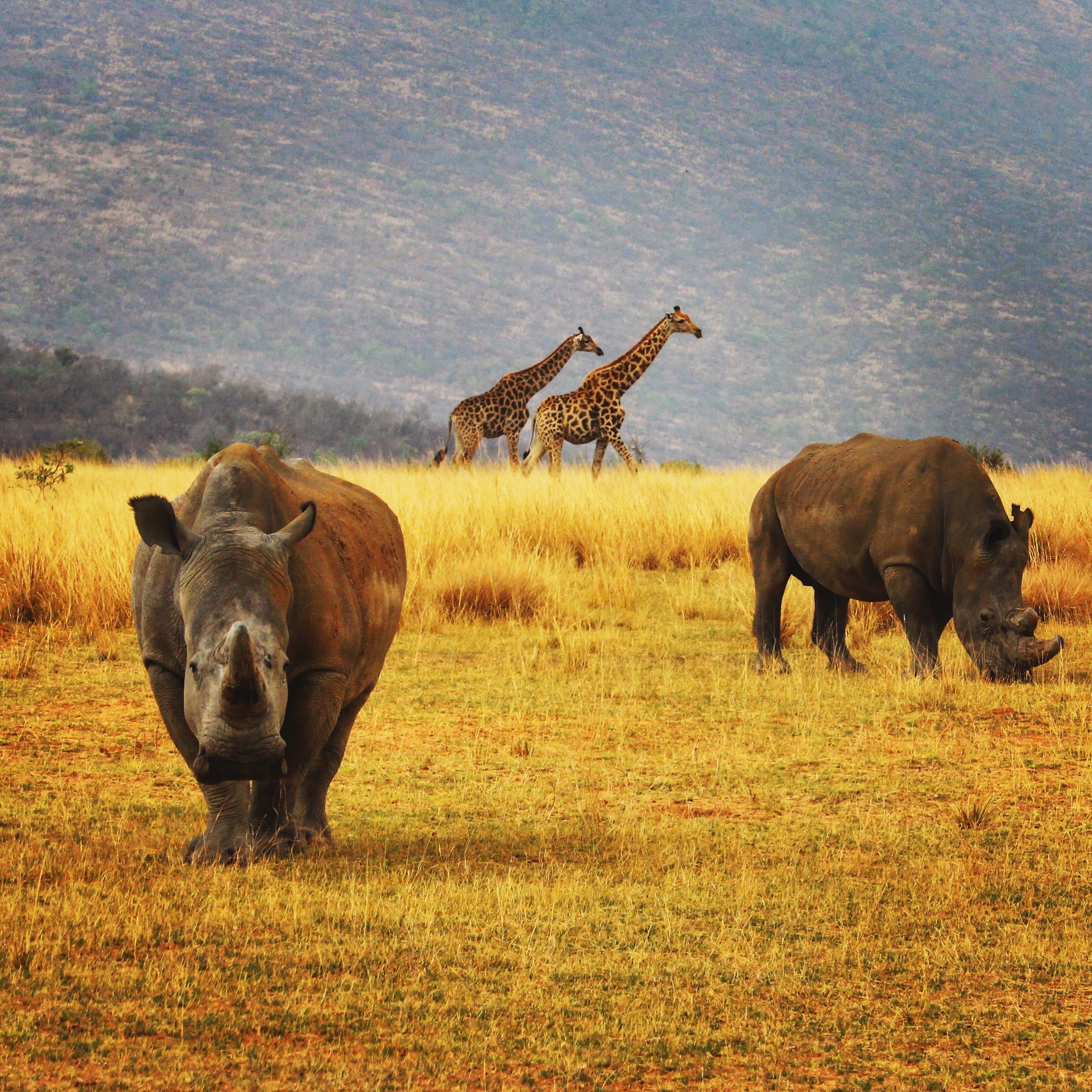
The Power of Apology and Forgiveness
If we apologize genuinely and effectively, identifying and rectifying the affront, we can actually strengthen our team bonds and strengthen our standing within the team. If we fail to apologize — or do so half-heartedly or in a way that does not relieve the burden of offense — it is highly improbable we will receive any forgiveness. Instead, we damage our team, receive the negative outcomes Fehr et al describe, and thus damage our standing within the group.

Adaptive and Maladaptive Reaction to Threats
Through most of human history, humans have had to be very good at identifying and protecting against things that wanted to hurt us…things like saber-toothed tigers or perhaps the Mongol Horde. While similar environmental threats still exist, albeit on a different evolutionary scale, we generally no longer face such threats to our existence on a daily basis. But that doesn’t mean our brains have stopped scanning the environment for potential harm; on the contrary, our brains are hardwired for self-protection. However, the environmental threats we’ve evolved to identify and avoid have now been replaced by actual or perceived threats to our identity and thus our place in society.

Leadership and Intelligence Collection
Leadership is an inherently difficult role and especially so when challenging decisions must be made whilst balancing competing interests. Libraries have been filled with books and articles on this topic, and I hardly want to compete with those, but via the lens of an article recently published in Foreign Affairs, I want to look briefly at the communication and intelligence challenges leaders face.
The article, What the Mighty Miss: The Blind Spots of Power, by Ngaire Woods, focuses on Putin’s miscalculations in his invasion of Ukraine, his underestimation of how the Ukrainians would respond, and his overestimation of the strength of his military. While most leaders do not invade other countries, and most do not set themselves up as pariahs on the scale of Mr. Putin, this article does point out several danger zones in communication, intelligence collection, and decision-making that are relevant to leaders at all levels.

Culture Matters (Part II)
The individualist culture that dominates American culture is a direct result of the market economy that America has been at the forefront of developing over the past 200 years. We may not have created the first stock exchanges, but shortly after its origin in 1792, the New York Stock Exchange emerged as the clear leader in world financial markets.
Buying stock in a company you know little about, from a broker you do not know, is much different than the historical model of trading commodities with your neighbors. It requires a different type and degree of trust. So, while it may seem counterintuitive to how we may believe the market-driven business world operates, those in an individualist culture are very quick to give trust. We have to be or the market economy would not work as it does. Earning someone’s trust in our culture just is not that difficult compared to a collective culture where trust is earned over an extended period, through an ever-evolving web of reciprocity. Individualist cultures trust and then verify. Collective cultures, verify, verify again, and then consider trusting.

Culture Matters (Part 1)
There are those who theorize that culture does not matter in interviewing—that if you consider the person in front of you, not worrying about cultural differences, you’ll get the best results—but the research proves this theory incorrect. Culture matters, and if we deal with someone from a different cultural background solely through our own cultural lenses, we’re very unlikely to reach a profitable outcome.
Regardless of whether you are aware of it, or believe it matters, you grew up in a culture, and that culture shaped how you perceive the world. Every bit of information that comes your way and every thought that results, happens through the filters your particular culture has created and continues to create within you. The mix of culture that develops within you may be different than those around you, but it will share many similarities and it will always be there in the background churning through the data.

Why Mental Models Matter
As a leader in an organization, your intention, I assume, is to create a culture that promotes innovation and adaptation and makes employees feel like valued and important members of your team; but what if how you are communicating is creating a mental model of a workplace that is not aligned with these goals?
My niece and sister visited us in New Hampshire last week and when my niece got out of the car, I saw she was holding a book I recognized. She’s always holding a book and has read a rather impressive number and range of works and the book she had with her was “Deep Survival,” by Laurence Gonzales. If you do anything that might possibly put you in danger, even something as seemingly undangerous as hiking, this is the book you should read. It’s brilliant and I was quite excited to see her reading it as she becomes an accomplished mountaineer and climber, but my point here is neither survival nor my niece. It’s how this science-based book relates directly to organizational culture and communication. Gonzales’s book draws on an array of neuroscience to understand who survives life-and-death situations and it applies equally well to challenges we face daily within our organizations.

Why Not Ask Why?
“…half the time when someone asks you a question with a W, they aren’t really asking you a question. They’re making a statement in disguise.” (Amor Towles, The Lincoln Highway.)
This last week I was facilitating a group of undergraduate seniors on a tour of various law enforcement agencies in the Washington D.C. area. Some of them have never been to D.C. or on any trip like this and the conversation moves often to “why is it like this…and why isn’t it like that?” Why questions are awesome when we are that age and exploring new experiences and forging an understanding of the world. But in the world of investigative interviewing, whether corporate or law enforcement, as powerful as we may want to believe they are, why questions can be problematic.

Where Should You Place Your Confidence?
I receive about six different news updates in my email every day, and each seems to be trying to outdo the others with catchy and sometimes amusing (or misleading) headlines. Yesterday, the headline for one of them was, “90 percent of life is confidence”— a quote from an anime series I’ve not yet watched. That does sound good, and wouldn’t life be easy if that were true? In my courses I talk frequently about the importance of confidence; yet the headline made me think about all the ways confidence, and overconfidence, can lead us to suboptimal outcomes and how perhaps we can avoid this by refocusing where we place our confidence.

Are You in Control of Your Choices & Beliefs?
Up to 80 percent of the choices and decisions we make in life are made at the subconscious level. We don’t weigh the costs and benefits; we don’t consider the long-term implications. An answer simply arrives in our conscious brain, and we act on that answer. We believe it to be the best answer, and that it was made by our conscious, rational brain, so we rationalize until we’re comfortable with it, so long as it generally aligns with our beliefs and values…unless we consciously intervene and overrule the subconscious processes where most of this decision-making takes place.

Perspective Taking or Empathy
In any difficult conversation, and especially so when the stakes are high or we are under pressure, we tend to focus on our wants and needs—to see the situation through our lenses—and fail to take the time to see it from the perspective of the people with whom we are interacting. Any good photographer knows that if you change your perspective, you are likely to create something great and unexpected, and the same holds true for life and leadership. Take a different perspective and the outcome is likely to be better.

Toolboxes and Mindsets
Earlier this week, my peas and Japanese cucumbers had reached the stage where they needed trellising so I pulled out the fancy trellis a gardener’s catalogue had convinced me was going to be the most amazing thing. To my dismay, but hardly to my surprise, it would take me a full year to untangle the bright green plastic mess and it seemed not sturdy enough to support anything had I succeeded in untangling and stringing it up. I’m not annoyed at the catalogue; I’m annoyed at myself for failing to think like a gardener and instead thinking like someone who collects gardening tools and gadgets. I’d fallen prey to the “toolbox approach”, the thing I’ve most adamantly pushed back on the past ten or more years in the realms of investigating and interviewing.

Being Present in an Interview
If you are like me, the word presence, and worse, mindfulness, probably make you shudder a bit. They bring to my mind people who talk too softly, have a preference for gypsy pants, and might want me to perform a group rhythmic dance to help cure trauma I’m not aware of having. That all is pretty much the opposite of my thing. Still, being present and being mindful can make us so much better at interviewing and at our jobs and lives in general, and it doesn’t have to be such an annoying process to get there.

Shoshin - The Art of Beginner’s Mind
I’ve started teaching undergraduate courses in the Criminal Justice program at New England College. While teaching the concept of drawing inferences from available facts and information, the students were coming up with inferences about the given situation that my expert mind rebelled against. I wanted them to come to the inferences my years of professional experience had already locked in, but they were seeing far greater possibilities.

Learning through Failure
Each year as the New Year begins, I reflect on what I accomplished last year, what I could have done better, and how I can be better this year. I imagine many of us do the same, making resolutions to learn more and to be better in some aspect of our lives. As I have been thinking about this, my thoughts keep returning to one book…

Practice
Not only am I proud of my parents’ great effort to recover the pool table, I’m also excited to begin practicing pool again and doing so using the deliberate practice methods Anders Ericsson has spent years researching, and which he explains fully in his outstanding book Peak: Secrets from the New Science of Expertise. This type of deliberate, focused practice, with immediate and unambiguous feedback works great for things like pool, but how does it apply to the messier world of Intelligence Interviewing?

Festina Lente
Festina lente, meaning “make haste slowly”, is an oxymoron with roots back to the Roman Empire, where Caesar Augustus used it to admonish his generals against rashness. In the 15th century, the philosopher Erasmus wrote extensively on the phrase as a means of reflection and controlling passions. I do not remember exactly where I first came across it; but I do remember being struck by how applicable it was to the crime scene work that was my primary responsibility at the time. And now how applicable it is to the world of interviewing.

Rapport
I do not intend to make this blog just a recounting of what we cover in our courses and course books; rather, I want it to be an extension, to discuss and explore new ideas and research. One topic I do want to discuss at some length, and which is central to our methodology, is rapport. I want to talk about it because as prevalent as the concept of rapport is, when I see interviews go off the rails it is most often because of a misunderstanding of rapport and a failure to attend to rapport correctly.

Philosophy
I don’t profess to be smarter or wiser than you, it’s simply that I love sharing knowledge and I love working with other people to help them find the very best in themselves and to become the best at whatever they are pursuing. I have spent much of my career, amid the investigations and travels to far flung places, figuring out how to do this and look forward to sharing through Pyxis Academy what I’ve learned.
